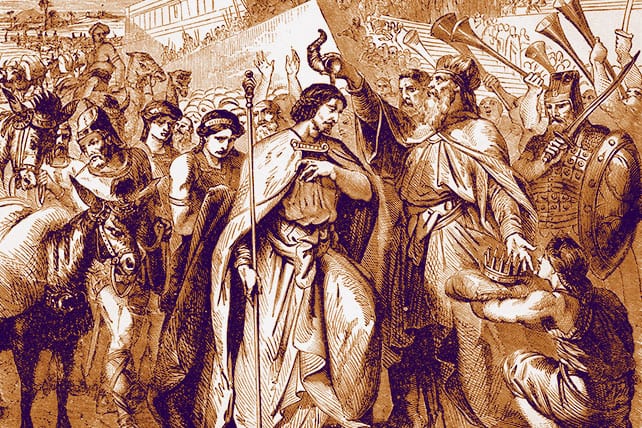Saul was a head above most men. David was ruddy and smaller in stature. Saul was driven by an evil spirit and died a crazed, God-forsaken man. David drove an evil spirit from Saul with the sound of his lyre. Saul hid out in his tent when Goliath taunted the Israelites. David stood up for his people and his God and defeated Goliath. The difference between bad and great leaders is not appearance or experience. God uses the unexpected, unimpressive, and inexperienced to accomplish remarkable things.
The ultimate contrast between these men was not their appearance or experience; it was their spirit. Their relationship with the Holy Spirit made all the difference in their leadership. The chronicler of Israel’s history points to this primary difference between these two leaders: “And the Spirit of the LORD rushed upon David from that day forward. And Samuel rose up and went to Ramah. Now the Spirit of the LORD departed from Saul . . .” (1 Sam 16:13-14). We’re told that the Spirit rushed upon David, while the Spirit departed from Saul. One man was Spirit-filled and led. The other was Spirit-devoid and distrusting. David pled with God to not take his Spirit (Ps 51:11) from him. God’s Spirit left Saul.
Consider three differences in leadership between David and Saul:
Mature Zeal
In the face of Philistine blasphemies, David was incited with zeal for the Lord: “He was stirred to the depths with concern for the glory of God.”
David’s zeal was not for personal success but for God’s glory. He wasn’t childishly driven by self-promotion. He was bent on promoting the reputation of God. What am I promoting? Am I stirred to depths for the glory of God? Every one of us can ask these questions. Are we hiding out in our tents, our libraries, our offices, or are we incited with zeal for the Lord to pursue his glory through leadership, work, discipleship and mission? Are we passionately pursuing God’s glory or our own glory in how we lead?
Management vs. Empowerment
Saul tried to manage and control everyone around him. He relied on bribes to get others to fight Goliath (17:25). Saul discouraged young leaders like David (to not fight Goliath) because he was threatened by their leadership. The problem wasn’t that Saul lacked vision for what David could become; it was that he feared what David could become. He sought to manage, not empower the leaders around him. David, on the other hand, was constantly surrounded by “mighty men.”
We can lead our company, church, and organizations through empowerment. Rather than insist on control, we can relinquish control to let other leaders rise up in faith. Often we are too doubtful about some and too confident about others.
Moved by Wisdom
David wasn’t all zeal and faith. His zeal was mature because it was guided by wisdom and marked by self-control. When mocked by his brothers, he did not pick a fight or defend his abilities. Instead, he channeled indignation towards his enemies (17:28-29). The Spirit produces leaders that are balanced and discerning, not merely zealous and faith-filled.
Instead of getting side-tracked by petty issues, comments, and complaints, we lead with “one blind eye and one deaf ear” as Spurgeon put it. Don’t linger over the negative. Instead, we try to wisely discern what voices to listen to and which ones to shut out. Don’t entertain every idea. Follow the Spirit through wisdom, not ambition.
May God make us zealous, empowering, and wise leaders. May he never take his Holy Spirit from us. May we lead well and finish strong, ever dependent upon the Spirit, glorifying our great Redeemer and King Jesus!

